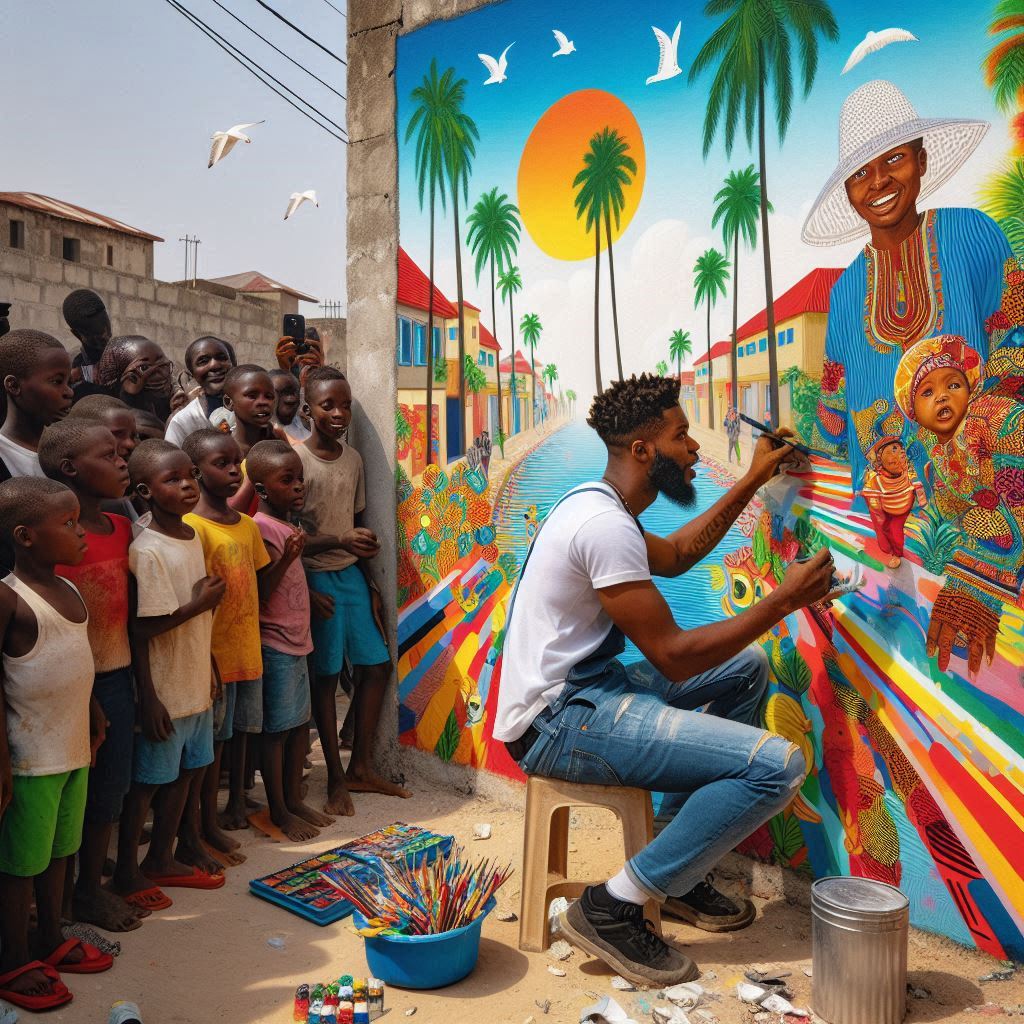Introduction
In Nigeria, sociology delves into societal structures. It scrutinizes human interactions, norms, and institutions.
It’s the lens through which we understand society’s complexities.
Human rights are essential entitlements. They encompass freedoms and liberties inherent to every individual. They form the bedrock of justice and equality.
When we blend sociology and human rights, we uncover profound insights. Nigeria becomes a tapestry of social dynamics and rights struggles.
In this post, we’ll explore this intersection. We’ll dissect Nigeria’s societal fabric and human rights landscape.
Nigeria, a diverse nation, brims with cultural richness. Its societal makeup reflects varied traditions, religions, and ethnicities.
Yet, beneath this diversity lie deep-rooted issues. Socioeconomic disparities persist, breeding inequality and injustice.
Human rights violations plague the nation. From police brutality to discrimination, many Nigerians face systemic oppression.
Understanding these complexities requires a sociological lens. It unveils the underlying structures perpetuating rights abuses.
Through sociology, we analyze power dynamics and social hierarchies. We question norms and challenge injustices that violate human dignity.
In Nigeria, the struggle for human rights intertwines with societal change. Activists and organizations strive for a more just and equitable society.
This post will delve into these complexities. It will unravel the intricacies of sociology and human rights in Nigeria.
Join us as we navigate this terrain. Together, we’ll unravel the layers of Nigeria’s sociocultural tapestry and human rights challenges.
Historical Context of Human Rights in Nigeria
In order to understand the current human rights issues facing Nigeria, it is important to examine the historical context of human rights in the country.
Nigeria, formerly a British colony, gained independence in 1960 after years of colonial rule.
Overview of Nigeria’s colonial history and the impact on human rights
During the colonial era, human rights were not a priority for the British colonial government.
Nigerians were subjected to various forms of exploitation, including forced labor and discriminatory laws.
This period of colonial rule laid the foundation for the violation of human rights in Nigeria.
Human rights violations during military dictatorships in Nigeria
Following independence, Nigeria experienced a series of military dictatorships that further exacerbated human rights violations in the country.
The military regimes were characterized by widespread corruption, suppression of dissent, and arbitrary detention of political opponents.
- Under military rule, freedom of speech and assembly were severely restricted.
- Dissidents were often targeted and subjected to torture and extrajudicial killings.
Overview of current human rights issues facing Nigeria
Today, Nigeria continues to grapple with a range of human rights issues, including government corruption.
Corruption at all levels of government has hampered efforts to protect human rights and ensure accountability.
- Police brutality: The Nigerian police force has been accused of widespread human rights abuses, including arbitrary arrests and extrajudicial killings.
- Discrimination: Discrimination based on ethnicity, religion, and gender remains a significant challenge in Nigeria.
In fact, the historical context of human rights in Nigeria sheds light on the complexities of the current human rights challenges facing the country.
Addressing these issues will require a multifaceted approach that tackles corruption, improves accountability, and promotes respect for the rule of law.
Read: The Impact of Globalization on Nigerian Sociology
Sociological Perspective on Human Rights Issues in Nigeria
From a sociological perspective, human rights issues in Nigeria can be analyzed through various theories that help understand the underlying factors contributing to violations.
These theories provide insights into the structural and institutional dynamics shaping the human rights landscape in the country.
Sociological Theories on Human Rights Issues
Conflict theory highlights power struggles and social inequalities that lead to human rights abuses.
Social constructionist theory examines how societal norms and values influence perceptions of human rights.
Functionalism theory emphasizes the role of social institutions in promoting or inhibiting human rights practices.
Structural Factors Contributing to Human Rights Violations
Poverty creates conditions where individuals are susceptible to exploitation and abuse of their rights.
Inequality exacerbates social tensions and can result in discrimination and marginalization of certain groups.
Political instability disrupts governance structures, leading to impunity and disregard for human rights protections.
Influence of Social Institutions on Human Rights Practices
The legal system plays a crucial role in upholding human rights standards and holding perpetrators accountable.
Religious institutions can either promote tolerance and equality or justify discriminatory practices against certain groups.
Educational institutions shape attitudes and beliefs about human rights among the populace, influencing behaviors and practices.
Overall, a sociological perspective on human rights issues in Nigeria helps uncover the complex interplay of structural factors and social institutions that either uphold or undermine human rights protections.
By understanding these dynamics, efforts can be made to address systemic injustices and promote a culture of respect for human rights in the country.
Read: Rural Sociology: Challenges in Nigerian Villages
Case Studies of Human Rights Violations in Nigeria
Examples of human rights violations in Nigeria
Examining specific examples of human rights violations in Nigeria sheds light on the challenges faced by individuals in the country.
Transform Your Career with Expert Guidance
Get personalized mentorship consulting that’s tailored to your unique path. Our expert advice is actionable and exclusive.
Get StartedThe following case studies highlight some of the most pressing issues:
Boko Haram Insurgency
Boko Haram, a terrorist group in Nigeria, has been responsible for numerous human rights violations, including attacks on civilians and abductions.
The group has targeted schools, leading to the infamous abduction of more than 200 schoolgirls from Chibok in 2014.
These violations have resulted in loss of lives, displacement of communities, and profound psychological trauma for the victims.
Gender-Based Violence
Women and girls in Nigeria often face gender-based violence, including rape, domestic abuse, and harmful cultural practices like female genital mutilation.
These violations are rooted in gender inequality, societal norms that condone violence against women, and a lack of legal protections for victims.
Efforts to address gender-based violence are hindered by stigma, fear of reprisals, and a lack of access to justice for survivors.
LGBTQ Rights
Members of the LGBTQ community in Nigeria face discrimination, harassment, and violence due to deeply entrenched societal attitudes towards homosexuality.
The Same-Sex Marriage Prohibition Act of 2013 criminalizes same-sex relationships, further marginalizing LGBTQ individuals in the country.
These violations of LGBTQ rights are compounded by a lack of legal protection, social support, and advocacy for the community.
Analysis of Contributing Factors
The social, economic, and political landscape in Nigeria plays a significant role in perpetuating human rights violations.
Factors that contribute to these violations include:
Social Factors
- Deep-rooted cultural norms and traditions that condone violence against certain groups, such as women and LGBTQ individuals.
- Stigma and discrimination towards marginalized populations, leading to further social exclusion and vulnerability to human rights abuses.
Economic Factors
- Socio-economic inequality and poverty create conditions that make individuals more susceptible to exploitation and abuse.
- Lack of access to basic amenities, including healthcare and education, exacerbates vulnerabilities and perpetuates violations of human rights.
Political Factors
- Corruption and weak governance structures undermine the rule of law and hinder efforts to protect human rights in Nigeria.
- Restrictions on freedom of expression, association, and peaceful assembly limit the ability of civil society to advocate for human rights reforms.
Role of International Human Rights Organizations
International human rights organizations play a crucial role in addressing human rights violations in Nigeria and advocating for justice and accountability.
Their contributions include:
- Documenting and reporting on human rights violations to raise awareness and pressure governments to take action.
- Providing legal assistance and support to victims of human rights abuses to seek justice and reparations.
- Engaging in advocacy and lobbying efforts to hold perpetrators accountable and push for legislative reforms to protect human rights.
In short, addressing human rights violations in Nigeria requires a multi-faceted approach that tackles the root causes of these abuses and empowers individuals to assert their rights.
International support and collaboration are essential in creating a more just and inclusive society for all Nigerians.
Read: Media and Sociology: Understanding Nigerian Dynamics

Gain More Insights: Comparing Arabic and Islamic Studies Programs
Social Movements and Activism for Human Rights in Nigeria
There have been various social movements and activism efforts in Nigeria focused on human rights over the years.
These movements aim to address issues such as police brutality, corruption, gender equality, and freedom of expression.
Overview of Past and Current Social Movements
- The Civil Rights Movement in the 1960s fought against colonial rule and pushed for independence.
- The Women’s Rights Movement has been advocating for gender equality and empowerment.
- The #EndSARS Movement in 2020 protested against police brutality and demanded police reform.
- The Bring Back Our Girls Movement raised awareness about the abduction of schoolgirls by Boko Haram.
Impact on Raising Awareness and Advocating for Change
These social movements and activism efforts have been instrumental in raising awareness about human rights violations in Nigeria.
They have sparked national and international discussions, putting pressure on the government to address these issues.
The #EndSARS Movement, for example, led to the disbandment of the notorious Special Anti-Robbery Squad (SARS) and sparked conversations about police reform.
Challenges Faced by Human Rights Activists
- Government Crackdowns: Human rights activists in Nigeria often face intimidation, harassment, and crackdowns from the government for speaking out against human rights abuses.
- Lack of Resources: Many activists operate with limited resources, making it challenging to sustain their efforts and reach a wider audience.
- Security Concerns: Activists face threats to their safety and well-being, with some even experiencing physical violence for their advocacy work.
In general, social movements and activism for human rights in Nigeria play a crucial role in challenging injustices and advocating for a more equitable society.
Despite facing significant challenges, these movements continue to inspire change and push for a better future for all Nigerians.
Read: Environmental Sociology: Nigerian Issues and Insights
Delve into the Subject: Impact of Mass Communication on Nigerian Society
Learn More: Impact of Economics on Nigeria’s Development
Government Response to Human Rights Issues in Nigeria
Government Policies and Initiatives
The Nigerian government has implemented various policies and initiatives aimed at upholding human rights.
These include the National Human Rights Commission Act, which established the National Human Rights Commission (NHRC) to promote and protect human rights in the country.
Furthermore, the government has ratified international human rights treaties such as the International Covenant on Civil and Political Rights (ICCPR) and the Convention against Torture and Other Cruel, Inhuman or Degrading Treatment or Punishment (CAT).
These commitments underscore the government’s recognition of the importance of human rights.
Additionally, the government has launched initiatives such as the National Action Plan on Human Rights aimed at mainstreaming human rights into government policies and programs.
These efforts demonstrate a commitment to respecting and upholding human rights in Nigeria.
Effectiveness of Government Efforts
Despite the existence of policies and initiatives, there are concerns about the effectiveness of government efforts to protect and promote human rights in Nigeria.
Human rights violations, including extrajudicial killings, arbitrary arrests, and torture, continue to be reported in the country.
The lack of accountability and transparency within government institutions has contributed to the perpetuation of human rights abuses.
The NHRC, despite its mandate, faces challenges in addressing human rights violations effectively due to limited resources and political interference.
Furthermore, the implementation of human rights policies often falls short, with weak enforcement mechanisms and inadequate monitoring and evaluation.
This has hampered the government’s ability to address systemic human rights issues effectively.
Opportunities for Improving Accountability
There are opportunities for improving government accountability and transparency in addressing human rights violations in Nigeria.
Strengthening the independence and capacity of the NHRC is crucial to enhancing its effectiveness in investigating and redressing human rights abuses.
Enhancing collaboration between government agencies, civil society organizations, and international partners can also help improve accountability and transparency.
Mechanisms for monitoring and evaluating government efforts in upholding human rights should be strengthened to ensure compliance with international standards.
Promoting public awareness and education on human rights can empower citizens to hold the government accountable for human rights violations.
Civil society organizations play a vital role in advocating for human rights protection and should be supported in their efforts to hold the government accountable.
In review, the Nigerian government must prioritize human rights and take concrete steps to address systemic issues that undermine human rights protection.
By enhancing accountability and transparency, the government can demonstrate its commitment to upholding human rights and promoting a just and inclusive society for all Nigerians.
Uncover the Details: Essential Skills for Aspiring Nigerian Fashion Designers
Conclusion
We have explored the various human rights issues present in Nigeria, including gender inequality, corruption, and discrimination.
These issues have a direct impact on the social fabric of Nigerian society.
As individuals, organizations, and the government, we must work together to promote and protect human rights in Nigeria.
It is crucial to create a society where every individual’s rights are respected and upheld.
Sociology plays a vital role in understanding and addressing human rights issues in Nigerian society.
By utilizing sociological perspectives, we can analyze the root causes of these problems and develop solutions that promote justice and equality for all.




